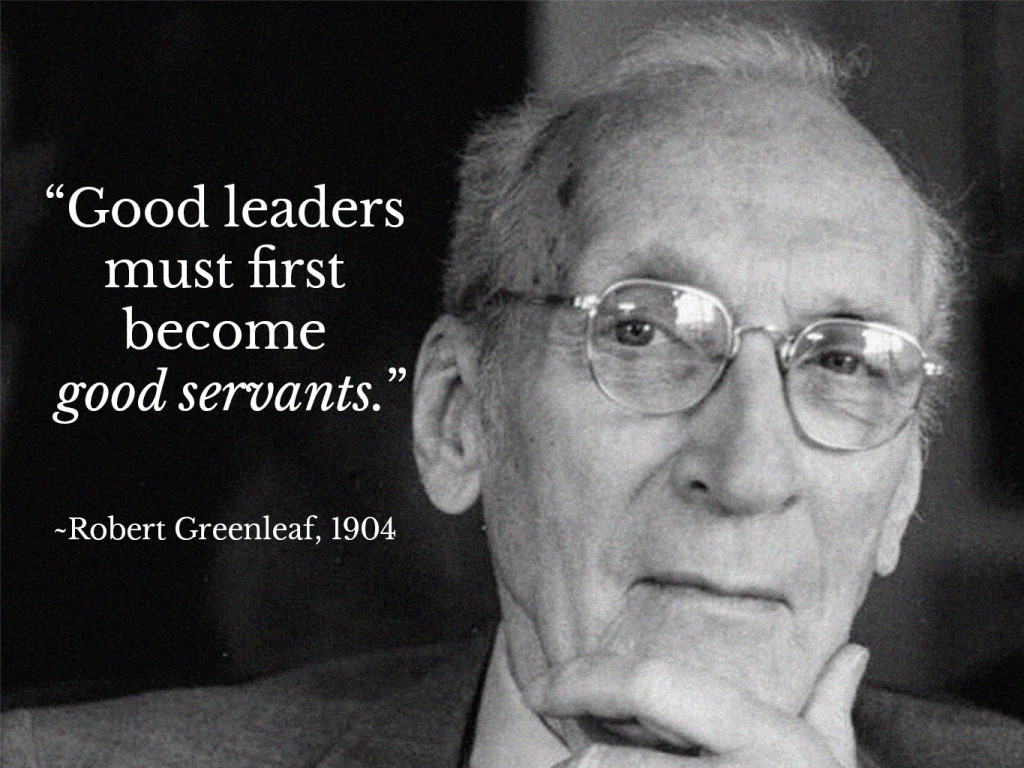*This is an excerpt from the essay All Shine: How Stewardship Built a Vision
In early October, I was walking with a friend. We were discussing the topic of compassion, and he said something striking.
“Compassion is not boundless. To be effective, it needs to be channelled into a specific locality or sphere in which you have the influence to make at least a part of the world a better place.”
This quote is a good starting place for introducing the concept of Servant Leadership, because the sphere of influence and the compassionate vision of a Servant Leader is broad indeed.
The term Servant leadership was coined by Robert K. Greenleaf, who founded the “Center for Applied Ethics” in 1964. After he died in 1990, the name of his organization was changed to the Greenleaf Center for Servant Leadership. At the present time, the Servant Leadership movement representing the ideas of Robert Greenleaf is under the stewardship of Larry Spears.
What is Servant Leadership?
Greenleaf spent more than 40 years after early retirement researching management, leadership, education, and organizational culture. Over time, he came to the conclusion that the institutions in this country -both public and private- are suffering from a “crisis in leadership.”
In the Essay that started it all, Servant as Leader, Greenleaf introduces a vision of leadership in which leaders see themselves as servants first and leaders second. Leadership is viewed as an instrument of serving the greater good, not as an end itself, and the search for and acquisition of power or influence is always subsumed into the overarching desire to be of service.
Servant Leaders are fundamentally about people and define the stakeholders in their sphere of influence quite broadly, including colleagues, subordinates, boards of directors/trustees, clients and even the world at large. They place the needs of their people as primary and will not sacrifice the needs of the organization they lead in the service of furthering their own careers.
Before I elaborate on the conceptual framework around Servant Leadership, I want to say a few words about the title I chose for this section. The wording of the title was borrowed from an article by legal scholar David Yamada, the author of the Healthy Workplace Bill. His title is “The social responsibilities of intellectuals at a time of extraordinary need.” The article is worth a read, as are most of the articles David has written. I do not know David personally, but at the present time, he is one of my favorite authors in the area of workplace ethics and social responsibility.

